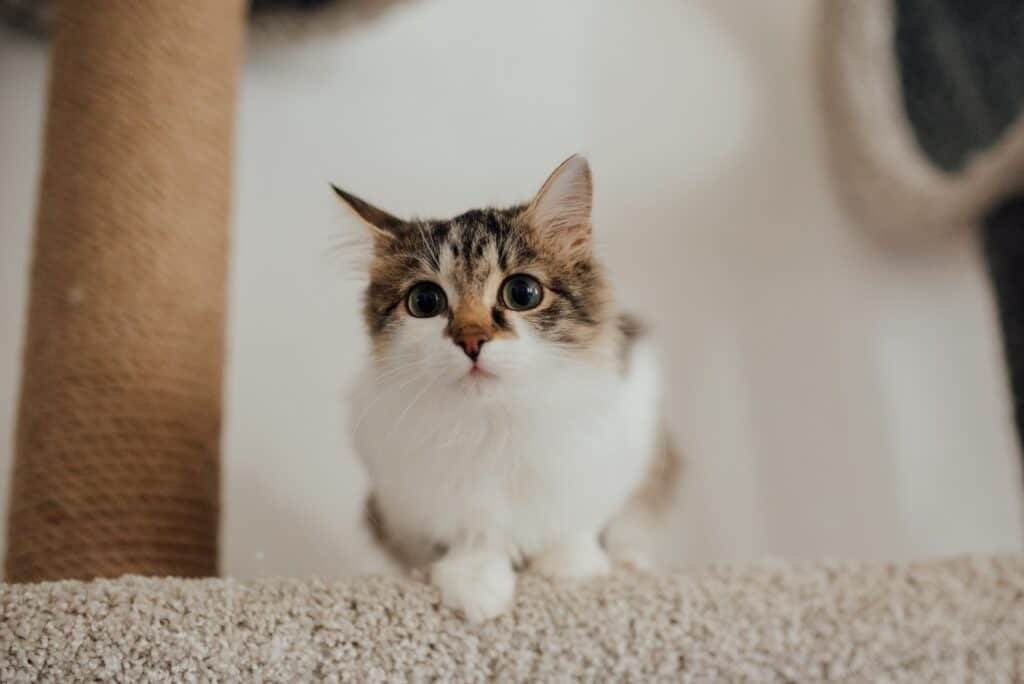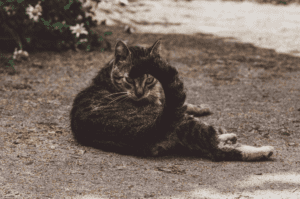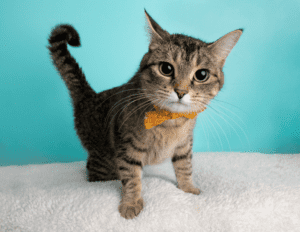Are Monstera plants toxic to cats? Monstera is a very popular houseplant in almost every household nowadays. If you have a pet in your house, you are probably aware that most pets are allergic to many houseplants.
Cats are also allergic to houseplants, so you have to be careful while choosing houseplants. Some plants can prove deadly to them, so make sure to keep those plants which your cat is not allergic to.
Table of Contents
What is a Monstera Plant?
Monstera plant is easy to maintain if it is in the right environment and care. It is a vining plant with unique features, and the leaves are huge.
You can also grow it indoors if you have enough space. It is an ideal houseplant because it is easy to maintain, and it can also survive from indirect sunlight.
Its appearance is unique because Monstera has holes on the leaves and a ribbon-like design, making it look like Swiss cheese.
The Monstera plant has toxins on its leaves, which can be dangerous to both humans and pets if ingested.
Are Monstera Plants Toxic to Cats?
Monstera plants contain toxins that are insoluble and not easily digested. One of the toxins presents in the monstera plant is calcium oxalates.
All parts of Monstera are toxic for cats. If your cat ingests the monstera plant, it can irritate his tongue and mouth.
Cats cannot digest these plants, which can lead to drooling and sometimes cause the cats to vomit and expel the leaves out of their body.
Monstera plants can also cause swelling on their face and a burning sensation in their mouth, making it difficult for them to eat any food.
Why Monstera Plant is Poisonous to Cats?

Are monstera plants poisonous to cats? Yes, every part of the Monstera plant is poisonous to cats.
The reason for this is the sap portion inside the window leaf. Toxins are found in both roots and leaves.
These are the components of Monstera plants that are poisonous to cats.
1. Oxalic Acid
Oxalic acid is present in the Monstera plant, and if it is ingested in large amounts, it can harm the cardiovascular system. If your cat eats leaves of Monstera, it can affect the functioning of the kidneys.
2. Calcium Oxalate
Calcium oxalate is the crystalline salt of oxalic acid, which can irritate the mucous membrane. It can also harm the kidneys of your pets and cause ulcers.
3. Resorcinol
It is also a harmful substance present in the Monstera plant that can damage the nervous system of your cats.
4. Bitter and Pungent Substances
These are the substances present in the Monstera plant because they ward off predators. They can also prove to be toxic to your cat.
What are the Symptoms of Poisoning from Monstera Plant?
Many toxic active ingredients in the Monstera plant can get into the cat’s organs and lead to plant positioning.
Are Monstera Plants Toxic to Cats? Yes, it can, and when your cat is exposed to plant poisoning, you can see these symptoms.
After recognizing the symptoms, immediately call your veterinarian doctor or take your cat to the nearest animal hospital.
How dangerous the plant poisoning is determined by the amount of plant eaten.
Consumption of leaves will lead to irritation, burning the mouth, and damage the mucous membrane. A quick nibble won’t cause much damage to your cat’s health.
The most common symptoms of poisoning by Monstera are
- Loss of Appetite
- Vomiting
- Oral pain and intense burning
- Drooling
- Difficulty in breathing
- Swelling of soft tissues
- Profuse salivation
- Staggering or Trembling
- Kidney problems
- Diarrhea
How to Prevent Your Cat from Eating Monsters?

It is important to keep your cat away from the Monstera plants at your home. Eating the plant cat can damage it and get poisoned by ingesting it.
1. Spray Water
One of the techniques you can apply is to keep spraying the plants. Train your cat by spraying water on them, and don’t allow them to go near the plant.
It is an efficient method that can keep them away from the plant. Make your pet understand that touching or eating this plant is dangerous.
2. Caging or Netting the Plant
You can create a boundary between your cat and the Monstera plant by caging or netting it. Use birdcages to keep your cat away from the plants so it can keep Monstera safe from being eaten or nipped.
Netting can adjust and cover the plant pot base to keep your cat away from the plant.
3. Repellent Spray
Repellent spray can also be used instead of water spray to keep your cats away from the Monstera plant. You can also make an intense spray by mixing water with citrus fruit.
Hot chili pepper spray can also be used with caution. Try to use ingredients that won’t cause harm to both plant and cat.
4. Hanging Baskets or Pebbles
Place the Monstera plant in hanging baskets and make sure to keep it away from any furniture so that your cat won’t take support of anything to reach the plant.
Add a layer of pebbles that prevent the cat from digging into the plant to stay away and eat plant leaves.
Why are cats attracted to Monstera Plant?
Cat is a very curious animal, and the glossy and unique styles of the leaf of Monstera tempt the cat. Cats like to play around with plants, and sometimes they eat them.
When has the cat Eaten Monstera?
When your cat has nibbled on the window leaf and now showing symptoms of plant poisoning, immediately see a veterinarian and get proper treatment for your pet.
What to do If the cat has an Eaten Monstera Plant?
When you come to know that your cat has eaten Monstera, go to the vet, but if your cat does not show any symptoms, there is no need to worry. It’s better to keep the plant away from your cat.
Wrapping Up:
Are Monstera Plants Toxic to Cats? The Monstera plant has many toxic components that can cause various diseases in cats. If you nibble or eat Monstera, Cats will suffer from digestive and kidney issues. You have to keep the plant away and train your cat not to touch this plant.





